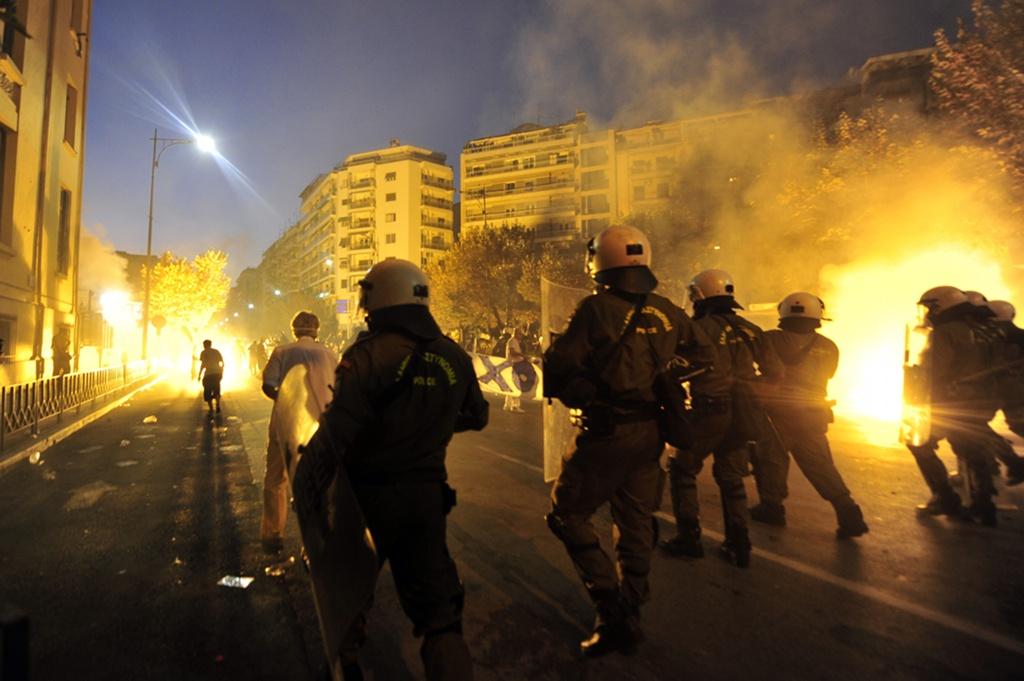Saving Greece (again)
Anti-riot police clashes with demonstrators during a protest in Thessaloniki, northern Greece on September 10, 2011. Clashes broke out between police and demonstrators today as thousands took to the streets of Greece’s second city of Thessaloniki in a mass protest against austerity measures.
The French-German "Merkozy" duo were at it again today, trying to save the euro zone. This time, they met via conference call. And Greek Prime Minister George Papandreou joined them. Merkozy pledged their support for Greece, once again.
In nearly identical statements, the French and German leaders affirmed that they “are convinced that the future of Greece is in the euro zone,” the New York Times reported.
Unlike the last time German Chancellor Angela Merkel met with Nicolas Sarkozy, markets didn't slide. On the contrary, Wall Street rallied. The Dow was up more than 2 percent in afternoon trading, before closing up 1.27 percent.
The statement of support was apparently welcomed, especially after some in Merkel's coalition have suggested publicly that a Greek default was something they could live with, as Der Speigel reports. Also bouying markets was a speach by European Commission President Jose Manuel Barroso expressing support for the issuance of euro bonds.
But does Europe — and particularly Merkozy — really have what it takes to save Greece? And wanting to save Greece isn't really the issue, but how. The Financial Times on Wednesday published a lengthy analysis unpacking the specifics of why the Greek bailout isn't working.
The FT argues that, less than two months after agreeing to a second, €109 billion, Greek rescue package "appears increasingly shaky."
"…almost every part of the new package — as well as the previous €110bn bail-out, agreed last May – is on the verge of collapsing. The Greek economy is in a tailspin, bondholders are in revolt, and voters in Europe’s creditor countries are increasingly calling on their leaders to cut Athens loose. 'There can be no more taboos,' Philipp Rösler, German economy minister, said at the weekend. 'That includes, if necessary, an orderly bankruptcy of Greece.'"
The FT article is a good read for anyone finding solace in Merkozy's latest statements. The challenges are formidable.
Follow author David Case on Twitter: Follow @DavidCaseReport
Every day, reporters and producers at The World are hard at work bringing you human-centered news from across the globe. But we can’t do it without you. We need your support to ensure we can continue this work for another year.
Make a gift today, and you’ll help us unlock a matching gift of $67,000!
